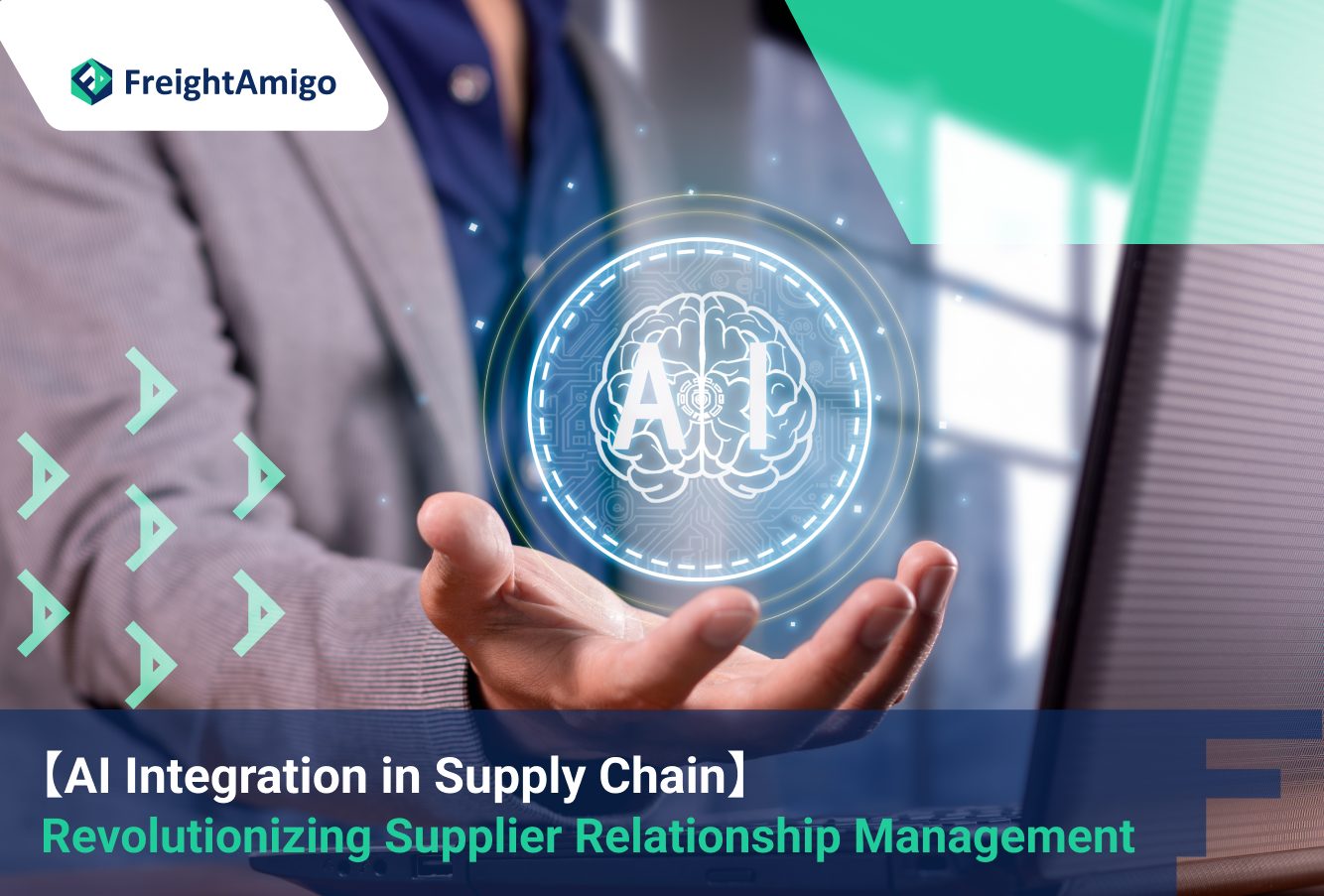In today’s fast-paced business environment, the integration of Artificial Intelligence (AI) has emerged as a transformative force in various industries. One field in which AI is proving to be a game-changer is supply chain management. By leveraging the power of AI, businesses can enhance their supplier relationships, optimize procurement processes, and drive innovation within the supply chain. In this article, we will explore the significant impact of AI integration in supply chain management, with a specific focus on revolutionizing supplier relationship management.
Latest update on 15 January, 2024 by Aiden Ng– Marketing Analyst at FreightAmigo
Want to compare the best Express, Air Freight, Sea Freight, Rail Freight & Trucking rates so as to have better control on cost?
The Power of AI in Supplier Relationship Management
Supplier relationship management is a critical aspect of supply chain management, as it involves building and maintaining relationships with vendors to ensure the delivery of quality goods and services at reasonable prices. The traditional approach to supplier relationship management often relies on manual processes, which can be time-consuming and prone to errors. However, with the integration of AI, businesses have the opportunity to transform their supplier relationships and drive efficiencies throughout the supply chain.
Predictive Analytics: Enhancing Decision-Making
One of the primary ways AI is revolutionizing supplier relationship management is through the use of predictive analytics. Traditional supply chain models often rely on historical data, which may not be sufficient in today’s dynamic business environment. AI, with its ability to analyze vast amounts of data in real-time, enables organizations to make more informed decisions. Predictive analytics, powered by AI algorithms, can forecast demand, identify potential risks, and optimize inventory levels. This not only leads to more efficient supply chain management but also empowers suppliers to proactively address challenges and meet the evolving needs of their clients.
Supply Chain Visibility and Transparency
AI-driven technologies are breaking down the barriers of opaqueness in the supply chain. Enhanced visibility allows businesses to track the entire life cycle of a product, from raw materials to the end consumer. This transparency not only reduces the risk of disruptions but also encourages suppliers to uphold higher standards in terms of quality and sustainability. AI can analyze various data points, including supplier performance metrics and compliance records, providing organizations with the insights needed to make strategic decisions about their suppliers.
Streamlining Procurement Processes
AI is streamlining the procurement process by automating routine tasks such as order processing, invoicing, and supplier onboarding. This not only frees up valuable human resources but also reduces the likelihood of errors associated with manual data entry. By automating these processes, organizations can achieve greater efficiency in procurement, allowing their teams to focus on more strategic and value-driven activities. Suppliers, in turn, benefit from faster and more streamlined transactions, leading to improved overall performance.
Personalized Supplier Relationship Management
AI is enabling a shift from a one-size-fits-all approach to a more personalized and collaborative supplier relationship management (SRM) strategy. Through machine learning algorithms, organizations can analyze historical interactions, supplier performance data, and market trends to tailor their approach to each supplier. This level of personalization fosters stronger partnerships, as suppliers feel more valued and understood. It also opens the door for collaborative innovation, as organizations and their suppliers work together to identify new opportunities and solutions.
Innovation through Data Insights
AI not only facilitates better decision-making but also acts as a catalyst for innovation within the supply chain. By leveraging AI-generated insights, organizations can identify trends, anticipate market shifts, and proactively respond to emerging opportunities. This proactive approach to innovation extends to suppliers who, armed with data-driven insights, can optimize their processes, develop new products, and enhance their overall offerings. The result is a supply chain ecosystem that is not just efficient but also agile and responsive to change.
Risk Mitigation and Resilience
In a globalized economy, supply chain disruptions are inevitable. AI equips organizations with the tools to identify and mitigate risks effectively. Through advanced analytics and machine learning, organizations can assess potential risks in real-time and develop proactive strategies to minimize their impact. This risk-aware approach enhances the resilience of the supply chain, making it more robust and adaptable to unforeseen challenges. Suppliers, too, benefit from this collaborative risk mitigation, as they are better prepared to navigate disruptions and maintain continuity in their operations.
The Future of AI Integration in Supply Chain Management
The integration of AI into supply chain management represents a paradigm shift in the way businesses engage with their suppliers. By harnessing the power of AI, organizations can optimize their supply chain operations and empower their suppliers to deliver higher performance. The future of supply chain management is undoubtedly intertwined with the capabilities of AI, and those who embrace its potential will be at the forefront of driving supplier performance and innovation.
As businesses continue to navigate the complexities of the modern supply chain, AI integration offers a path towards enhanced efficiency, transparency, and collaboration. By leveraging the power of predictive analytics, supply chain visibility, streamlined procurement processes, personalized supplier relationship management, innovation through data insights, and risk mitigation, organizations can build strong and mutually beneficial relationships with their suppliers. The integration of AI in supply chain management is not just about automation; it’s about driving supplier performance and fostering a culture of innovation. With AI, businesses can unlock new opportunities, optimize their operations, and stay ahead in the ever-evolving global marketplace.
There are different options for cargo transportation. If you want to choose the most convenient and suitable solution, it is best to have the full support of logistics experts! If you are planning to ship goods overseas, please go to the FreightAmigo page for inquiries.
===
Read More:
【A Comprehensive Guide】 How to Ship a TV
【Leveraging Smart Warehouse Inventory】 A New Era of Inventory Control
【Innovative Technologies】 The Role of AI Integration in Supply Chain Management
===If you have any inquiries on logistics/supply chain, feel free to contact FreightAmigo now:
Hotline: +852 28121686
WhatsApp: +852 27467829









































